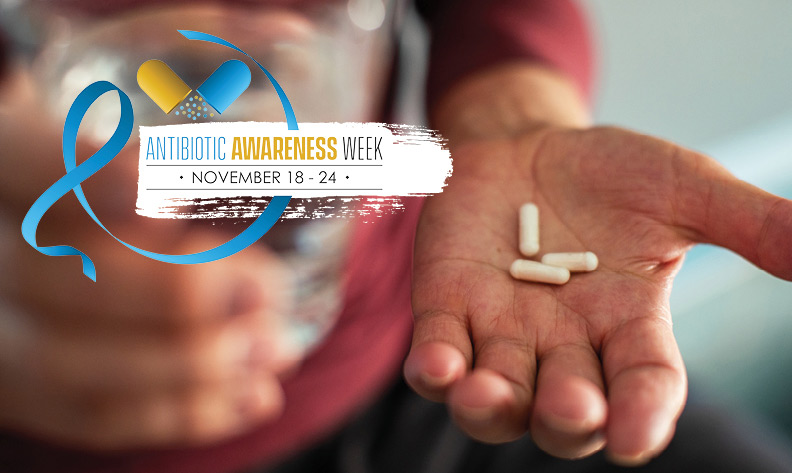The Importance of Taking Antibiotics as Prescribed
Antibiotic resistance can happen with improper use of the medication. That’s why it’s important to take your antibiotics as prescribed by your health care professional.
Antibiotics are medications used to treat bacterial infections. They were a major advancement in health care and significantly reduced mortality from illnesses when they were first approved. They’re typically only used for a short period.
If prescribed an antibiotic, it’s important to take the entire regimen. This is likely the only way to ensure all the bacteria causing the infection are killed. It’s also the best chance of keeping the infection from coming back.
If you start to feel better, that’s a good sign the antibiotic is working. However, that doesn’t mean you’re in the clear. This should not be a sign to stop taking the antibiotic as prescribed.
If enough of the bacteria causing the infection are still living, the infection can come back very quickly creating a need for more antibiotics.
Some people can develop antibiotic resistance which is caused by bacteria building a resistance to the first antibiotic. It will not work the second time around. This can make it increasingly difficult for medical professionals to treat the infection.
Although finishing the course of antibiotics isn’t a guarantee antibiotic resistance will not happen, it can slow down the process.
Leftover antibiotics should not be saved and taken later. The most significant danger associated with this is antibiotic resistance. There’s also a chance that the antibiotic will be past its expiration and won’t work or become toxic.
If a person has leftover antibiotics, they should be properly disposed of at a prescription medical location. The Minnesota Pollution Control Agency (MPAC) has drop-off sites listed throughout the state. Don’t flush or throw out any old prescriptions. Bacteria in the environment that are exposed to antibiotics can become resistant and spread that resistance.
If a person has trouble remembering to take a prescribed medication, there are some ways to be proactive. Try setting a phone alarm to ring when it’s time to take the next dose.
If it’s less than half the time to the next dose, it’s OK to take the missed dose. If it’s over half the time to the next dose, skip that one and continue the antibiotic as prescribed.
It’s important to keep in mind that not all infections require antibiotics. Sinus infections, common colds and bronchitis are mostly caused by viruses and don’t require antibiotics.
It’s always a good idea to discuss reasons for receiving an antibiotic with a health care professional if it’s prescribed. Since antibiotics can’t distinguish between bacteria causing an infection and normal ‘good’ bacteria, there’s a risk of a Clostridioides difficile (C. diff) infection occurring. C. diff is a colon infection that can cause symptoms ranging from infectious diarrhea to life-threatening colon damage.
Proper use of antibiotics can save lives, but when they’re improperly used, they can cause serious side effects and harm.